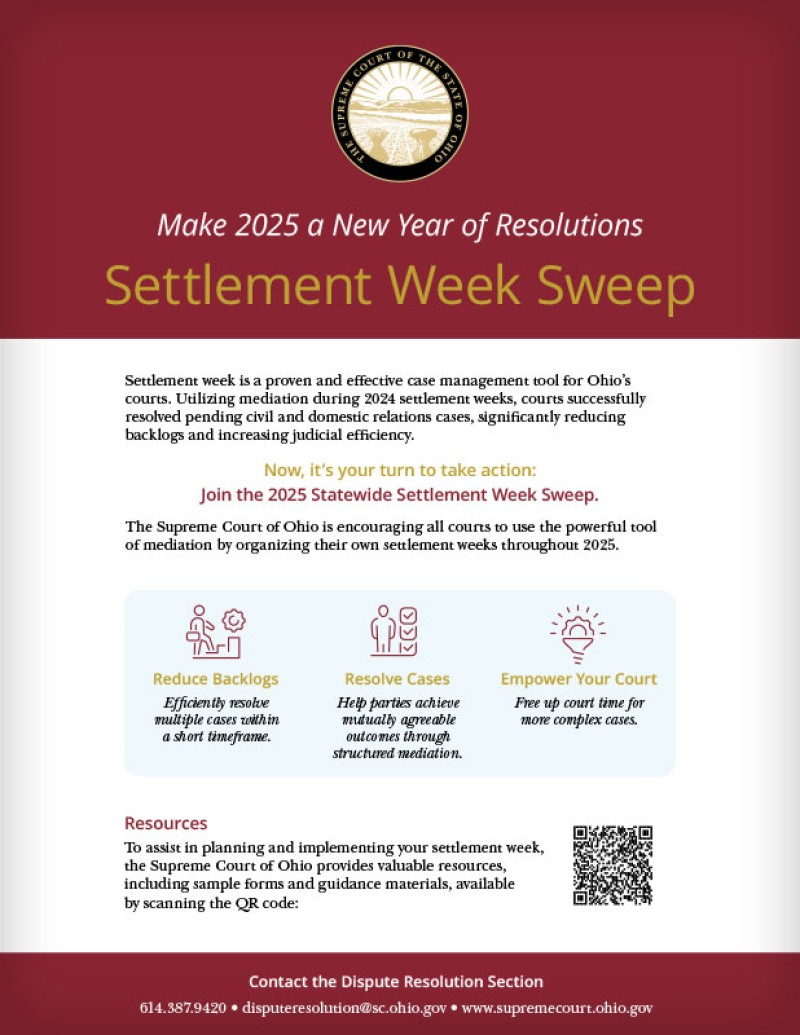Settlement Week
Introduction to Settlement Week
Settlement Week is a court-managed program to reduce court backlogs by using mediation to resolve pending civil or domestic relations cases.
The court designates a specific time period, which can be a week or just a few days, and selects cases for mediation, based on recommendations from judges, attorneys, or parties in dispute.
Experienced mediators are assigned cases by the court based on the mediator’s area of expertise. The mediators are asked to serve at reduced rates, and pro bono mediations are often available for lower income parties.
Settlement Week can be beneficial for all involved. The parties have the opportunity to work with an experienced mediator to settle their disputes expeditiously, outside of court, saving the time and expense of going to trial. The court can reduce its caseload, allowing the courts to focus on the cases which cannot be resolved, except by trial.
Settlement Week is in use in Ohio courts and has successfully reduced trial dockets and over-age civil cases in Ohio courts.
Courts wishing to begin a Settlement Week program may want to talk with courts that have had successful programs for more detailed and specific information.
Contact Information
Supreme Court of Ohio
65 South Front Street, 6th Floor
Columbus, Ohio 43215-3431
Manager:
Marya Kolman, Esq.
614.387.9422
Mediation Counsel:
Anne Thompson, Esq.
614.387.9367
Program Coordinator:
Kevin Lottes
614.387.9420

